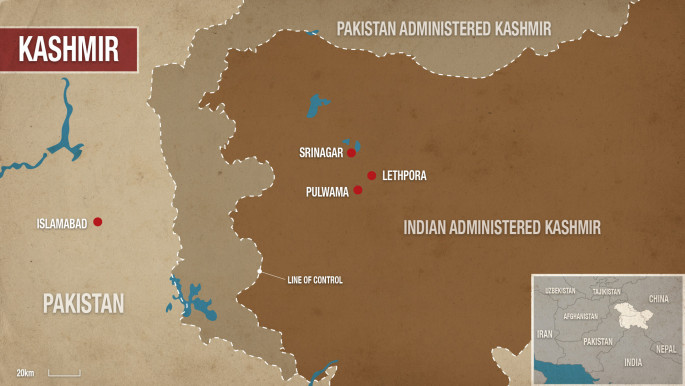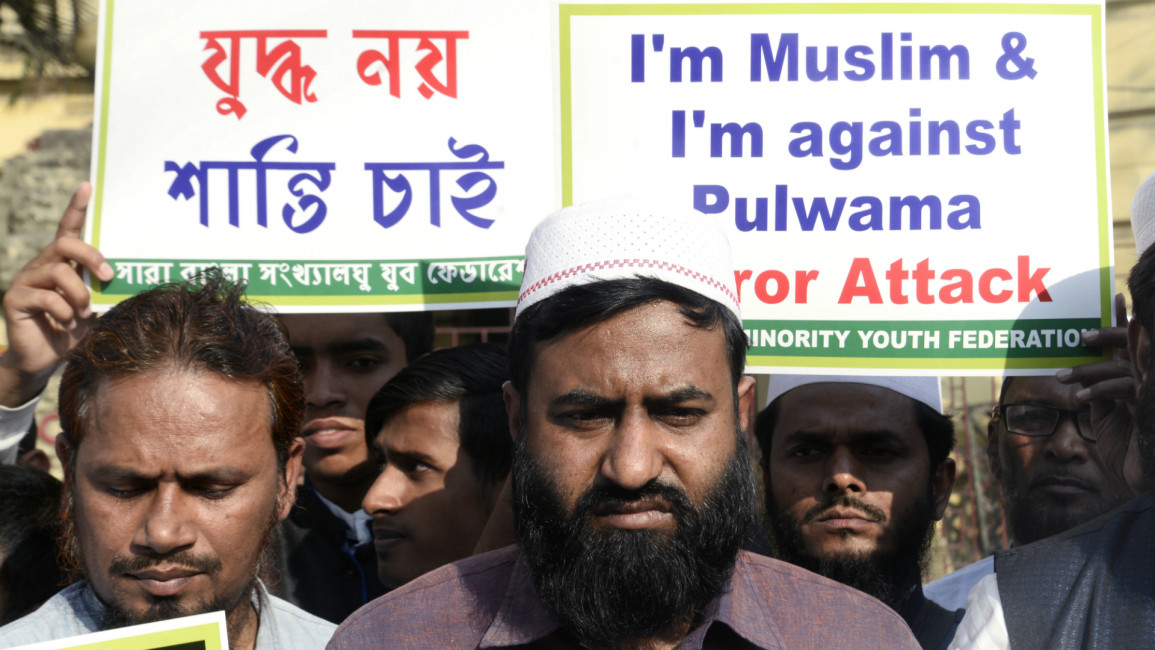India's top court orders protection for Kashmiris
India's Supreme Court on Friday ordered bolstered protection for Kashmiris who have faced a violent backlash from a suicide bombing in the troubled territory that killed 40 paramilitaries.
More than 700 Kashmiri students, workers and traders have returned to the Himalayan region from the rest of India to escape reprisals for the attack, which has escalated tensions with arch-rival Pakistan.
The top court told state governments and police chiefs to ensure there are no "attacks, threats or social boycott" over the February 14 bombing, the worst in the territory in three decades.
Read also: Valentine's Day attack worst in Kashmir since insurgency began
Video footage of Kashmiris being taunted or beaten has been widely shared on social media, while right-wing Hindu groups and some TV news channel pundits have encouraged reprisals.
Some Kashmiris have been suspended by Indian universities for their social media comments on the case. Others have been arrested on sedition charges.
"Immediately after the attack, mobs and vigilante groups engaged in vitriolic hate speech and began attacking, and threatening Muslims and Kashmiris throughout the country," said two activists who sought the Supreme Court action.
Kashmir business groups called for a protest shutdown of shops and stores in the territory on Friday against the "continuing threats and intimidation" of Kashmiri people in Indian cities.
The suicide attack was claimed by the Pakistan-based Jaish-e-Mohammad (JeM) militant group, which has fuelled the Indian anger against Pakistan.
 |
Immediately after the attack, mobs and vigilante groups engaged in vitriolic hate speech and began attacking, and threatening Muslims and Kashmiris throughout the country |  |
New Delhi has long accused its neighbour of backing JeM and other Kashmiri rebel groups, a charge Pakistan denies. Both claim Kashmir, which has been divided since their independence.
 |
|
Prime Minister Narendra Modi, who faces a looming election, is under pressure to take a tough stand on the attack, which was condemned on Thursday by the UN Security Council. He has vowed the militants "will pay a heavy price".
Another militant was killed during an army raid Friday north of the Kashmir's main city of Srinagar, police said.
Analysts say military action is possible, and villagers in Pakistani Kashmir have been told to take precautions including building bunkers.
Pakistan Prime Minister Imran Khan has vowed his country will retaliate if attacked. India has sought to isolate Pakistan internationally and imposed trade restrictions against its neighbour.
On Thursday, India's water resources and transport minister Nitin Gadkari reaffirmed an existing plan to restrict the flow of water to Pakistan from three rivers on Indian territory.
The sharing of water from the Indus River and its tributaries is regulated by a 1960 treaty. Authorities have acknowledged, however, that it will take several years for the threat to have any impact as dams will have to be built to divert water. Modi has made a similar threat before.
Kashmir is the site of a decades-long conflict between India and Pakistan in which both nuclear-armed nations claim the region but control only parts. Guerilla groups have fought against Indian rule in the Indian administrated Kashmir for the past thirty years.
"Many here want either independence from India or the merger of territory with Pakistan," wrote Aamir Ali Bhat, a Kashmir-based journalist, in a piece for The New Arab.



